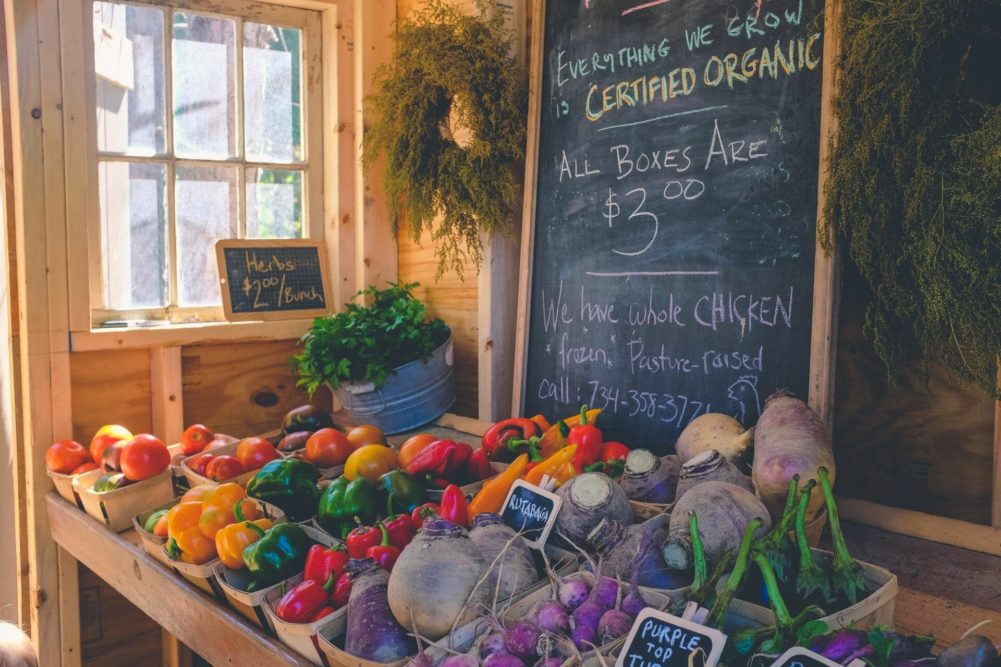Many diversified farming operations rely on a local restaurant scene to offload their bounties of produce, eggs, meat, and dairy products. As shelter-in-place orders lead to restaurant closures, many farmers are scrambling to forge a new route-to-market at a breakneck pace. Launching an e-commerce website or figuring out how to reach consumers directly is an incredibly steep learning curve.
As fresh produce business operator Gaston Marquevich recently told my colleague Louisa Burwood-Taylor, switching a farm business from selling to foodservice channels to selling to retail outlets is a lofty task.
“It would be almost impossible to make that shift in under a year,” Marquevich said, explaining that retailer clients have a long onboarding process for a new supplier as they cover off on issues such as food quality, traceability, compliance, and logistics. His fully-integrated operation grows, packs, and distributes organic and conventional onions, watermelons, citrus, zucchini, squash, and cabbage.
With the surge in grocery shopping over the last few weeks as restaurants and hospitality venues all over the world have been forced to close, retail demand for Generation Farms’ products has been high enough to take the small 10% of off-take usually destined for foodservice off his hands. But he’s lucky to already have those retailer relationships.
“For a small-medium sized grower that usually works with brokers supplying multiple restaurants, and hasn’t needed that traceability program in place, this is a big process to undertake and takes time, resources and investment to make happen,” he adds.
Some farmers have got around the retail hurdle by going direct-to-consumers, either by working with online farmers’ markets or even quickly creating their own e-commerce websites.
But sadly, for many farmers, switching to retail or direct-to-consumer has not been possible, resulting in produce left in the field to rot or the destruction of crops that can’t be sold. Reports are popping up everywhere highlighting the serious pressure and worry that many farmers are feeling about the food supply chain’s uncertain future. Farmers in the US were already dealing with difficult conditions raising the question of how many more pieces of straw the camel’s back can bear.
Can tech help farmers connect to new retail markets?
Steward, an online investment platform for sustainable farms, is hoping to offer farmers a digital bridge to new retail markets with a recently-launched suite of software tools to make pivoting to a consumer market possible.
“Demand for the direct purchase of local and sustainable farm products is exploding and in many cases replacing lost sales to restaurants and other businesses, which until recently were a key source of revenue for many small farmers,” said Dan Miller, CEO of Steward. “However, most local farms are not equipped with the tools they need to effectively sell to consumers.”
The new e-services offered by Steward include an e-commerce tool to sell direct to consumers, an accounting tool to keep track of books and inventory, and a fundraising tool for farmers to raise capital from their network, , all tailored to meet the needs of small farmers.
Already, three farms – Fisheye Farms in Detroit, Naked Acres in Beavercreek, Oregon, and North Bridger Bison in Bozeman, Montana – have utilized Steward’s software and services to expand their consumer business.
“With the e-commerce platform provided by Steward, we have been able to meet a surge in consumer demand and are now selling more product to area residents than ever before,” said Andy Chae, an owner of Fisheye Farms.
Fisheye Farms utilizes sustainable practices to grow produce, herbs, and flowers for local restaurants, farmers’ markets, and neighbors. Prior to the pandemic, a majority of its sales were to local restaurants. Utilizing Steward’s e-commerce platform, it is transitioning to online pre-order of farm boxes, which are pre-packaged for pickup to improve efficiency and minimize contact. The farm will also be providing a CSA in the near future.
Steward is helping North Bridger, a family-run ranch that provides environmentally friendly, humanely field-harvested bison meat, with obtaining a USDA Value-Added Producer Grant. The cash will enable their products to meet federal requirements for retail sales.
As grocery store shelves run empty and food shortages continue, many consumers are turning to local farmers to fill their fridges and pantries creating an uptick in demand. Naked Acres, a diversified family farm in Beavercreek, Oregon, is utilizing Steward’s new fundraising software tool to raise capital for working capital improvements and land purchase to continue growing their business. Currently operating on 75 acres of land, Naked Acres sells directly to the local community.
Steward offers a variety of investment options, including in a diversified portfolio of farm loans (Steward Farm Trust), individual farm loans, or Steward itself. The company vets each farm and develops a customized plan to provide the funds they need to grow and operate their business. It is currently working with dozens of farms around the country and world, including in Oregon, Louisiana, Pennsylvania, Colorado, and Switzerland.
On top of helping small-scale farmers obtain much needed capital, Steward provides business coaching and support services. For many farmers, spending long hours inside hunched over a computer or staring at charts and spreadsheets is a chore they’ll do anything to avoid. After all, most farmers enter agriculture because they enjoy the business of growing food, not bookkeeping.
These bonus services may be more important than ever as farmers become less able to rely on interpersonal relationships at farmers’ markets or through chefs and have to seek out new relationships. Turning to a digital e-commerce platform can be a big switch for some producers compared to the face-to-face engagement they’re accustomed to enjoying.
Creating new products that are easy to handle and ship during the pandemic is another option that some farmers are exploring.





